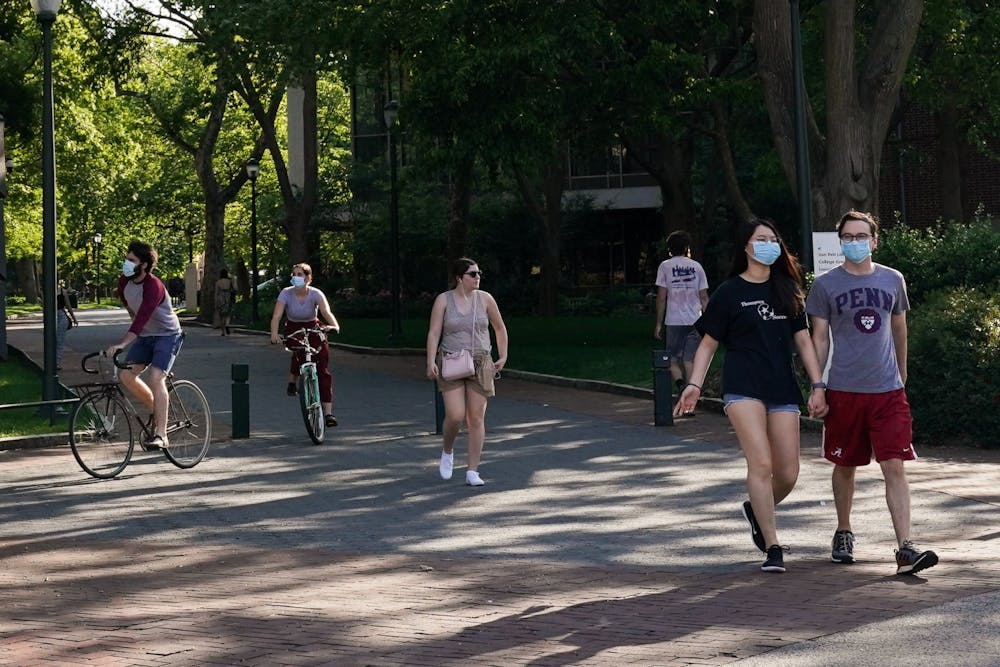
Recent studies show that partisanship is the main determinant of whether Americans are social distancing during the ongoing coronavirus pandemic. One Penn professor's newly published paper serves to prove it.
For the past few months, John Lapinski, faculty director of Penn’s Program on Opinion Research and Election Studies, has been conducting the study “Partisan Pandemic: How Partisanship and Public Health Concerns Affect Individuals’ Social Distancing During COVID-19" in efforts to highlight the effects of politics in public health.
The study, published on July 9, finds that personal political affiliation has more influence on social distancing than concerns for personal personal health or the health of the general public. It also reveals a growing effect of partisanship in the United States, particularly among members of the GOP, which experts claim has been an obstacle in mitigating the spread of the virus.
“All else equal, the relative importance of partisanship for the increasing (un)willingness of Republicans to engage in social distancing highlights the challenge that politics poses for public health,” the study's abstract reads.
The study dismisses the popularized notion that youth socialization is responsible for rising numbers of coronavirus cases in America, in place of partisan ties.
The Philadelphia Inquirer reported that young people are responsible for a recent rise in coronavirus cases in Philadelphia county, in part due to teenagers traveling to the Jersey Shore and socializing.
The researchers will continue conducting the study and examining how the effects of partisanship grow or change as the Nov. 3 general election grows closer. They had polled over 650,000 people as of mid-July according to PennToday, and anticipate to have interviewed a few million people by the end of the study.
The study found that Americans mirror the behavior of political elites when it comes to social distancing and mask-wearing. President and 1968 Wharton graduate Donald Trump first wore a mask in public on July 11, months after the pandemic led to shutdowns across the U.S.
“One of the things that we know is that people take cues from elites,” Lapinski told PennToday. “Recently, we’ve seen different messaging from Republican elites, as the virus spreads in red states. It will be interesting to see how that plays out and how that might change people’s attitudes across time.”
After recent peaks in daily coronavirus cases in southern states such as Arizona and Texas, Lapinski told PennToday that he believes Republican sentiments toward the pandemic and the surrounding public health crisis may change even more dramatically.
Lapinski serves as the Robert A. Fox Leadership Professor of Political Science and faculty director of the Robert A. Fox Leadership Program at Penn. In conducting the study, he worked alongside newly hired PORES Director of Data Science Marc Trussler and Jon Cohen of SurveyMonkey, and he collaborated with Cohen and Josh Clinton of Vanderbilt University’s Political Science department to publish the study.
“I am hopeful that people will start to realize what they should have all along: that COVID[-19] isn’t partisan," Lapinski told Penn Today. "It treats everybody equally.”
The Daily Pennsylvanian is an independent, student-run newspaper. Please consider making a donation to support the coverage that shapes the University. Your generosity ensures a future of strong journalism at Penn.
Donate




